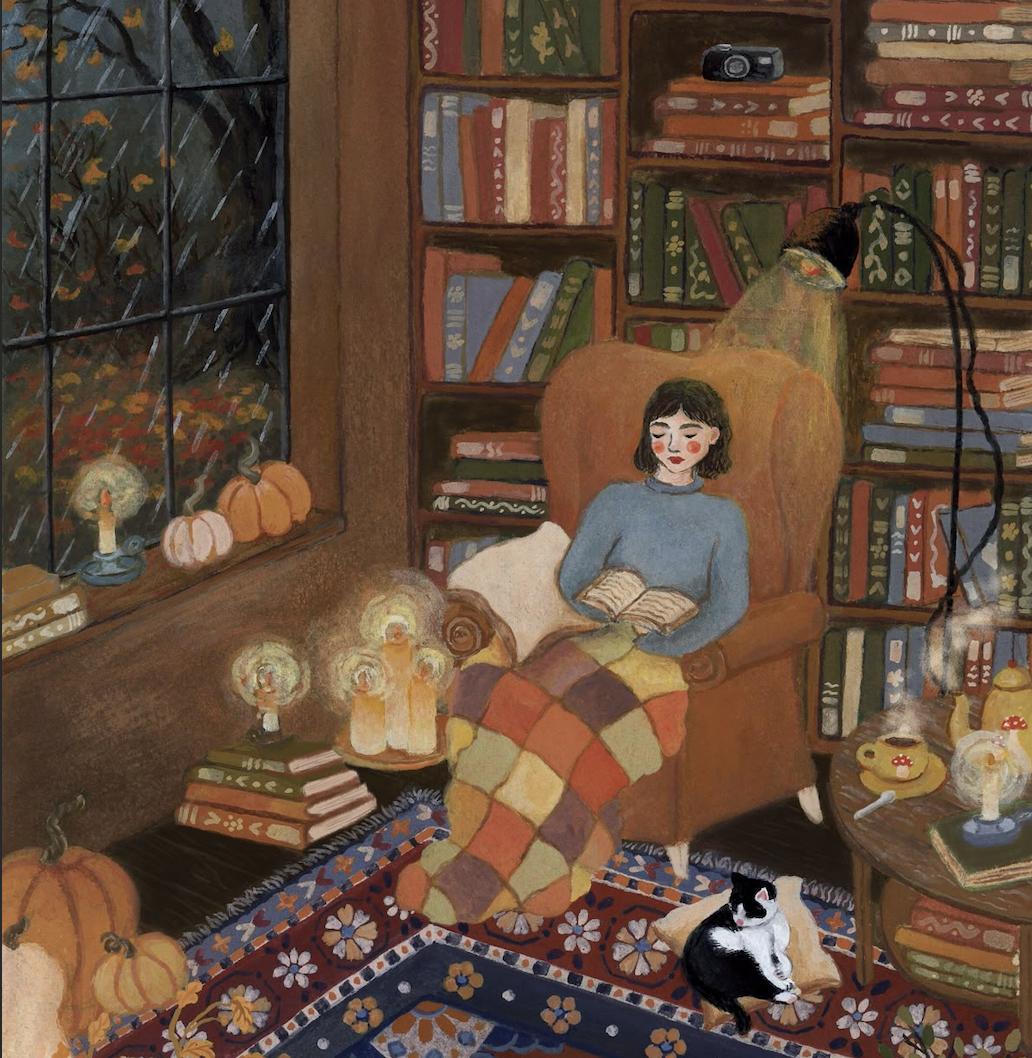The October Slide: Why Fall Can Be Tough with Chronic Illness 🍂
Spettel, Asia. Once Upon a Midnight Dreary. 2024. Illustration
Every year, as the leaves change and the air grows crisp, many people living with chronic illness might notice a familiar pattern: symptoms flare, energy drops, and daily life feels heavier. This phenomenon has been dubbed the October Slide—that seasonal shift when our bodies seem to struggle keeping up with the changing world around us.
Funny enough, I’m experiencing this right now. My energy has been low, my widespread pain has gotten worse, and I’ve been struggling to eat enough because of an increase in nausea. Happy October, spoonies. Strap in!
Why Does It Happen?
There isn’t one single reason, but rather a mix of seasonal factors that add up:
Temperature swings: Crisp mornings, warm afternoons, and chilly nights can throw off our body’s regulation systems. For people with conditions like dysautonomia, Ehlers-Danlos Syndrome, or autoimmune issues, this is especially challenging.
Light changes: Shorter days and longer nights affect circadian rhythms and mood. For some, this triggers fatigue, brain fog, or seasonal depression.
Immune stress: Fall marks the start of cold and flu season, adding pressure to already sensitive immune systems.
Lifestyle shifts: The busy energy of fall—school, work, holidays on the horizon—can pile on stress just as our bodies are asking for slower rhythms.
What It Feels Like
For many of us, the October Slide looks like:
Needing more rest than usual
Increased pain, dizziness, or fatigue
Feeling mentally foggy or more anxious
Struggling to keep up with social plans or commitments
I promise you, it’s not “all in our heads”. The October Slide is a real seasonal shift that our bodies feel deeply.
Ways to Support Yourself
While we can’t stop the seasons from changing, we can soften the landing:
Rest without guilt. Remind yourself that your body is working hard behind the scenes.
Layer up. Keep cozy clothes nearby so you can adapt to sudden temperature changes.
Light therapy. Consider a sunrise lamp or extra time outside to support circadian rhythm.
Nourish wisely. Warm, grounding meals and steady hydration help stabilize energy.
Set boundaries. Say no to extra commitments if your energy is already stretched thin.
A Gentle Reminder
If you’re experiencing the October Slide, you’re not alone. Give yourself permission to slow down and move with the rhythms of autumn, rather than pushing against them. Sometimes, the most healing thing we can do is listen to our bodies and honor their seasonal wisdom. 🍁
This is all great general information, but you might be curious about how this applies to YOU through this seasonal change. Wondering how a more personalized approach might support you? Health coaching could be the cornerstone of support for you this fall.

